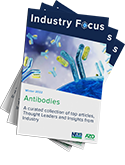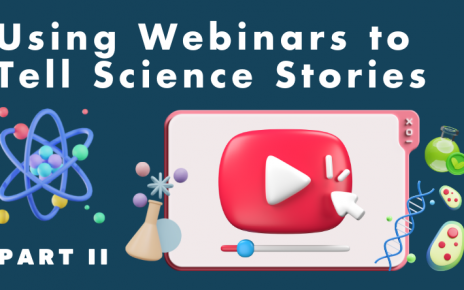Autism spectrum disorder (ASD) is a neurodevelopmental condition that causes repetitive behaviors and social communication impairments in children. Scientists are actively studying various aspects of immune dysfunctions related to ASD to better understand their role in the neurodevelopment of children with ASD.
A recent Biomedicines study hypothesized a dysfunction of the self-recognition properties of the immune system in autism.
 Study: Natural IgG Anti-F (ab’)2 Autoantibody Activity in Children with Autism. Image Credit: Dubova / Shutterstock
Study: Natural IgG Anti-F (ab’)2 Autoantibody Activity in Children with Autism. Image Credit: Dubova / Shutterstock
Background
ASD is associated with several immunological defects, such as reduced complement proteins, increased number and altered functions of natural killer (NK) cells and T-cells, gastrointestinal (GI) tract inflammation, and uncharacteristic proliferative responses to mitogens. In addition, children with ASD often exhibit abnormal B-cell and monocyte levels.
Several studies have indicated that ASD enhances cytokine levels in the cerebrospinal fluid (CSF) or serum concentrations of autoantibodies to caudate nucleus, myelin basic protein, cerebellar proteins or neurofilaments, nerve growth factor, neuron-axon filament protein, and α2 adrenergic receptors. In addition, serum autoantibodies, such as cerebral folate receptor autoantibodies or anti-nucleosome specific antibodies, have also been found in other brain components of children with autism.
Antibodies eBook

Elevated levels of anti-ganglioside M1 autoantibodies in serum have also been observed in autistic children. However, this finding contradicted another study that failed to find any association between autism and anti-ganglioside M1 autoantibodies.
Recently, scientists have reported on autoimmune processes associated with the central nervous system that cause mental disorders. For example, there have been several reports of children diagnosed with pediatric autoimmune neuropsychiatric disorders (PANDAS) associated with streptococcal infections. Similar conditions have been found in children with autism as well.
A crucial role of the immune system is to distinguish between “self” and “foreign.” Natural autoantibodies (NAAbs), which are antibodies present in the sera of healthy unvaccinated individuals, play an active role in protecting the host from harmful pathogens through immune response modulation, effective recognition of environmental antigens, and maintaining tissue homeostasis.
Previous research has shown that most NAAbs are multi-reactive. For example, some NAAbs are capable of recognizing various self-molecules and participating in physiopathological situations that can determine the beneficial or pathological role of an agent. Notably, in several neurodegenerative diseases and mental disorders, changes in NAAbs have been observed.
About the study
Natural anti-F(ab’)2 autoantibodies help recognize the immune self. The current study investigated the role of NAAbs, including the natural anti-F(ab’)2 autoantibodies, in changing self-recognition mechanisms in autism.
A total of 60 children with autism, which consisted of 38 males and 22 females, and 112 typically developing (TD) controls, 72 of whom were male and 40 female, were considered in this study. Both groups shared similar age, sex, and pubertal status.
All participants were Caucasian and had no history of neuroendocrinological disease or encephalopathy. The cognitive functioning of the ASD children was evaluated using the age-appropriate Wechsler intelligence scale and Kaufman K-ABC. Blood samples of the participants were collected to measure NAAbs levels.
Study findings
The serum levels of IgG anti-F(ab’)2 autoantibodies were significantly lower in children with autism as compared to the TD group and were negatively associated with autism severity. In addition, IQ scores were significantly and negatively correlated with IgG anti-F(ab’)2 levels in the autism group. Thus, autoantibody levels were more specific to autism than to intellectual disability.
The findings documented in this study are consistent with previous research revealing reduced IgG levels in children with autism as compared with the TD group. The current study also indicated the relationship between decreased IgG levels and severe autistic behaviors. Previous studies have also established an association between immune dysfunction and autism severity.
Considering the function of natural IgG anti-F(ab’)2 autoantibodies linked to self-recognition, the current study findings similarly indicate that impaired autoreactivity in autism leads to a dysfunction in the ability of the immune system to discriminate between self and non-self. The relationship between major histocompatibility complex (MHC) genes and ASDs also favors the autoimmune basis for autism.
Limitations
A key limitation is the small sample size of the autism group as compared to the control group. This is because children with mild/moderate autism typically do not go to daycare facilities on a regular basis.
Furthermore, drawing blood samples was much easier in the control group than in the ASD group. Another limitation of this study is the inability to determine the underlying mechanism associated with the observed phenomenon.
Conclusions
The current study was the first to highlight the association between abnormally low natural anti-F(ab’)2 autoantibody activity and severe autism. These findings support an autoimmune process in autism, in which a dysfunction of self-recognition mechanisms could manifest ADS. This finding opens the possibility of future therapeutic inventions for severe autism.
- Tordjman, S., Charrier, A., Kazatchkine, M., et al. (2023) Natural IgG Anti-F (ab’)2 Autoantibody Activity in Children with Autism. Biomedicines. 11(3),715. doi:10.3390/biomedicines11030715
Posted in: Medical Science News | Medical Research News | Medical Condition News | Disease/Infection News
Tags: Antibodies, Autism, Autoantibodies, Blood, Brain, Cell, Central Nervous System, Children, Cytokine, Disability, Encephalopathy, Genes, Growth Factor, Immune Response, Immune System, Inflammation, Monocyte, Myelin, Nerve, Nervous System, Neurodegenerative Diseases, Neuron, Protein, Receptor, Research

Written by
Dr. Priyom Bose
Priyom holds a Ph.D. in Plant Biology and Biotechnology from the University of Madras, India. She is an active researcher and an experienced science writer. Priyom has also co-authored several original research articles that have been published in reputed peer-reviewed journals. She is also an avid reader and an amateur photographer.
Source: Read Full Article



